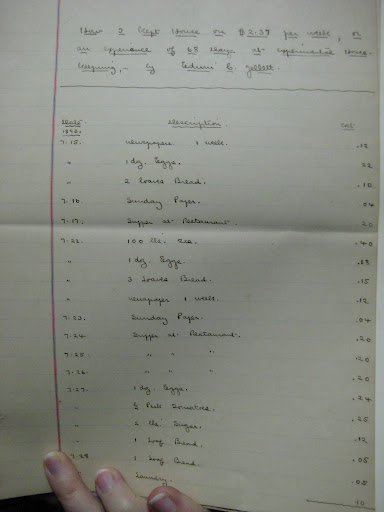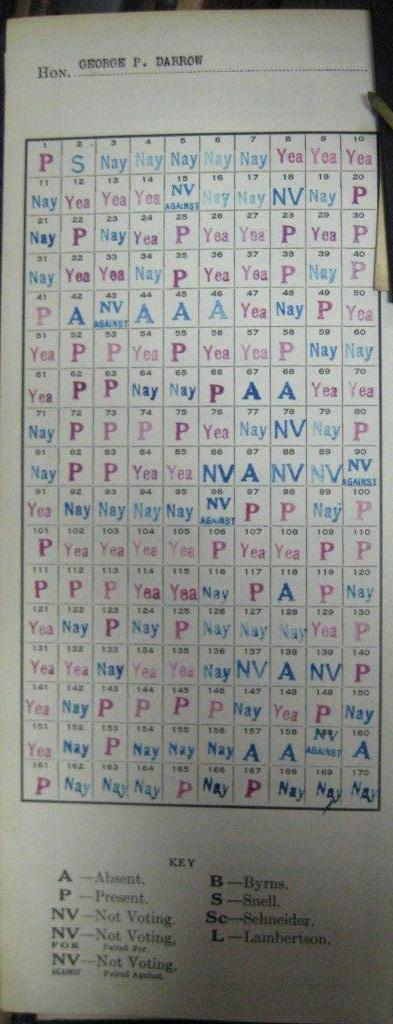This blog post is a tribute to all the list-makers and note-takers, the compulsive diarists and scrapbookers, the newspaper-clippers and document-abstracters whose profligate personal papers fill the shelves of historical societies everywhere. This is a tribute to Edwin C. Jellett. Among his papers at the Germantown Historical Society is the following 1893 document: "How I kept House on $2.37 per week, or an experience of 68 days at experimental Housekeeping, by Edwin C. Jellett."
As an archivist, the affection I feel for list-makers runs deep. This is partly because we are creatures of a kind--archival work is systematic, detail-oriented, and, well, it involves making a lot of lists. Lists of subjects in a collection; lists of collections to survey/process; daily to-do lists; the list I am presently writing... I also love list-makers because they contribute to archives so much data that can be used to establish facts, interpret history, or make archivists chuckle. I fawned over the Smithsonian Archives of American Art's exhibit "Lists: To-dos, Illustrated Inventories, Collected Thoughts, and Other Artists' Enumerations," and I eagerly follow Shaun Usher's blog, "Lists of Note."
Edwin Costley Jellett (1860-1929) was an engineer, amateur botanist, and local historian known for his various books about Germantown, its environment, gardens, old homes and residents of the area. He was also a list-maker. His papers at the Germantown Historical Society include meticulous scrapbooks (numerous, subject-based, and indexed by Jellett himself), journals, photographs, and notes, but my favorite document is "How I kept House on $2.37 per week, or an experience of 68 days at experimental Housekeeping, by Edwin C. Jellett."
$2.37 in 1893 equals about $61.30 in 2012 USD. This list tells us mundane facts, like how much it cost to purchase one dozen eggs, a loaf of bread, or a newspaper. It reflects Jellett's priorities--he was down to eating bread and eggs, but bought a newspaper every day and splurged for dinner at a restaurant once a week. It also hints at a trend in "experimental housekeeping" that may have passed through the general populace or locally interested Germantown residents. The list is an intriguing, rich document that opens many avenues for further research.
I'm sure many other fascinating lists are hidden away in the numerous archival collections at Germantown Historical Society, but you'll have to head over there to discover them for yourself! I leave you with just one more of my favorites--a voting list from the scrapbook collection of U.S. Congressman George P. Darrow (1859-1943). A beautiful list, and probably interesting too, if you can decode it!



